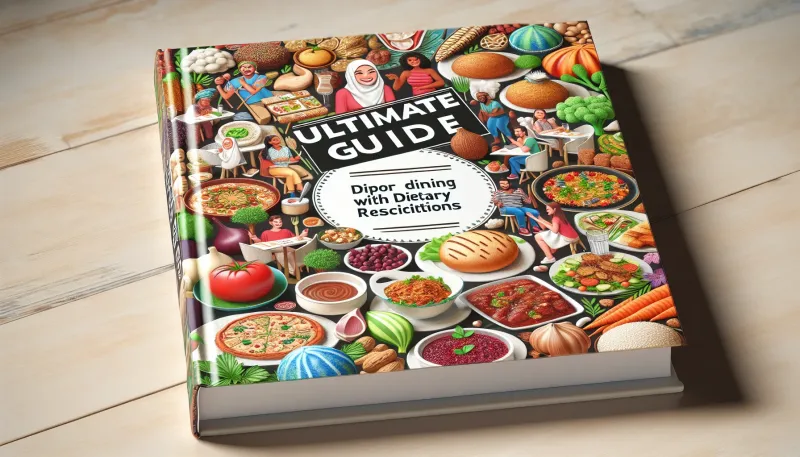The Ultimate Guide: Eating Out Tips for Dining with Dietary Restrictions

Discover expert eating out tips for dining with dietary restrictions. Navigate menus, communicate with staff, and enjoy your meals worry-free with our comprehensive guide.
Dining out can be a delightful experience, but it often presents challenges for individuals with dietary restrictions. Whether due to allergies, intolerances, or lifestyle choices, navigating a restaurant menu can be daunting. This comprehensive guide aims to provide you with valuable eating out tips for dining with dietary restrictions, ensuring you can enjoy a stress-free and delicious meal.
Understanding Your Dietary Restrictions
Common Dietary Restrictions
Before heading out, it's important to clearly understand your dietary restrictions. Some of the most common include:
- Gluten-Free: For those with celiac disease or gluten sensitivity.
- Dairy-Free: Necessary for people with lactose intolerance or dairy allergies.
- Vegan: Excludes all animal products including meat, dairy, and eggs.
- Vegetarian: Excludes meat but may include dairy and eggs.
- Nut-Free: For individuals with nut allergies.
- Low-Carb/Keto: Limits carbohydrate intake.
Preparing for Your Meal Out
Researching Restaurants
Choosing the right restaurant is the first step to a successful dining experience. Utilize online resources to find establishments that cater to your dietary needs. Look for restaurants with:
- Dedicated menus for dietary restrictions.
- Good reviews from others with similar dietary needs.
- Clear ingredient lists and allergy information.
Checking the Menu in Advance
Many restaurants publish their menus online. Review the menu before visiting to identify suitable dishes and avoid surprises. Make a note of potential modifications you might need.
Communicating Your Dietary Restrictions
Talking to the Staff
Effective communication with restaurant staff is crucial. Don't hesitate to inform them about your dietary restrictions. Be clear and concise:
- Specify your dietary restriction (e.g., "I have a severe nut allergy").
- Ask about ingredient details and potential cross-contamination.
Asking the Right Questions
To ensure your meal meets your dietary requirements, ask the staff specific questions:
- "Can this dish be made without [ingredient]?"
- "Is there potential for cross-contamination?"
- "Do you have a dedicated fryer for gluten-free items?"
Modifying Dishes to Suit Your Needs
Customizing Your Order
Don't be afraid to request adjustments to menu items. Most restaurants are willing to accommodate reasonable changes. For instance:
- Request sauces and dressings on the side.
- Swap sides to align with your dietary needs.
- Substitute ingredients where possible.
Choosing Safe and Suitable Dishes
Opt for Simple Preparations
Simple dishes are often safer as they contain fewer ingredients and potential allergens. Grilled meats, steamed vegetables, and plain salads are typically good choices.
Be Wary of Cross-Contamination
Even if a dish itself is free from allergens, cross-contamination can occur during preparation. Speak to the staff about their kitchen practices and choose restaurants with strict protocols.
Bringing Your Own Essentials
Emergency Supplies
If you have severe allergies, always carry your emergency medication, such as an EpiPen, with you. Inform your dining companions about your condition as well.
Bring Your Own Snacks
If you're unsure about the restaurant options, consider bringing your own snack or small dish to ensure you have something safe to eat.
Post-Dining Considerations
Leave a Review
After your dining experience, leave a detailed review online. Share information about how well the restaurant catered to your dietary restrictions, helping others in similar situations make informed choices.
Follow Up with the Restaurant
If you had a positive experience, follow up with the restaurant to express your gratitude. Conversely, if something went wrong, constructive feedback can help them improve their service.
Conclusion
Navigating dining out with dietary restrictions doesn't have to be a stressful ordeal. By doing your research, communicating clearly with staff, and making informed choices, you can enjoy a safe and delicious meal at any restaurant. Remember, preparation and communication are key components of a successful dining experience. Armed with these eating out tips for dining with dietary restrictions, you're ready to embark on a worry-free culinary adventure.



























